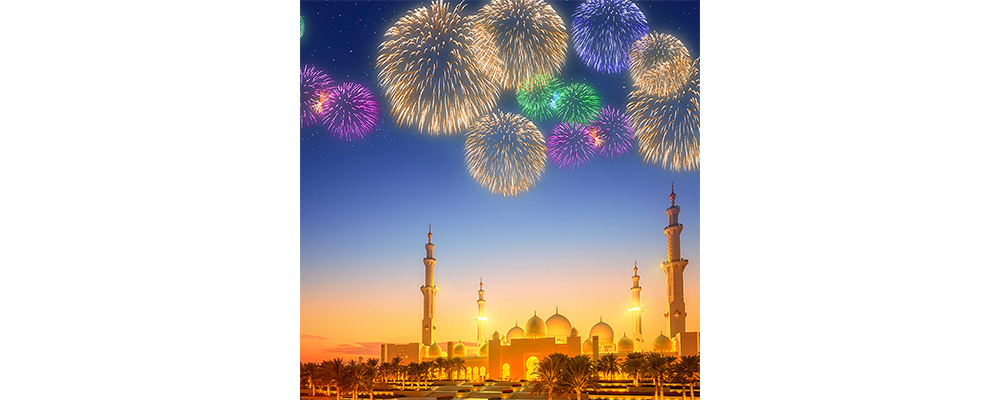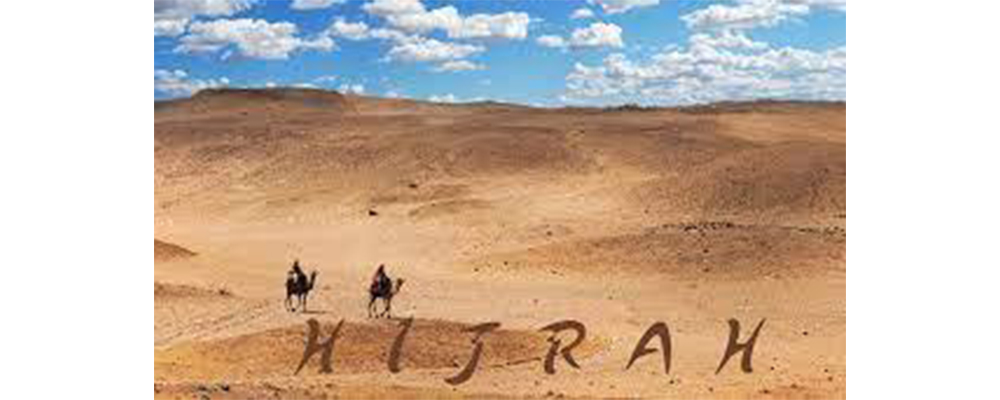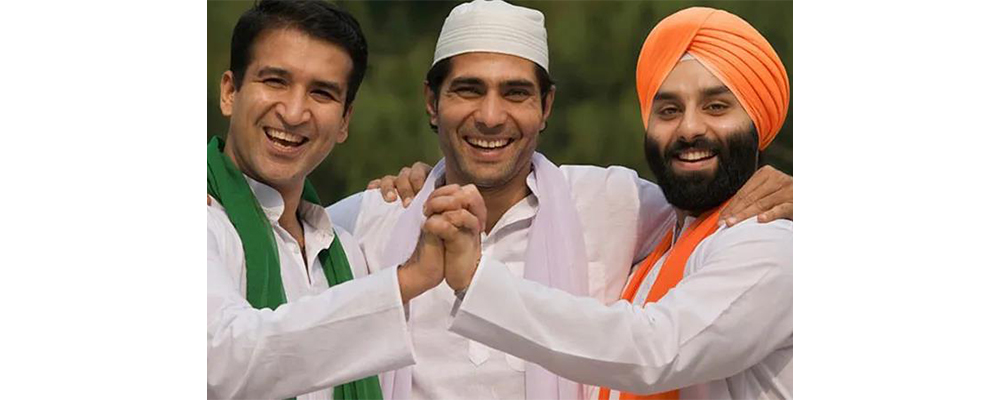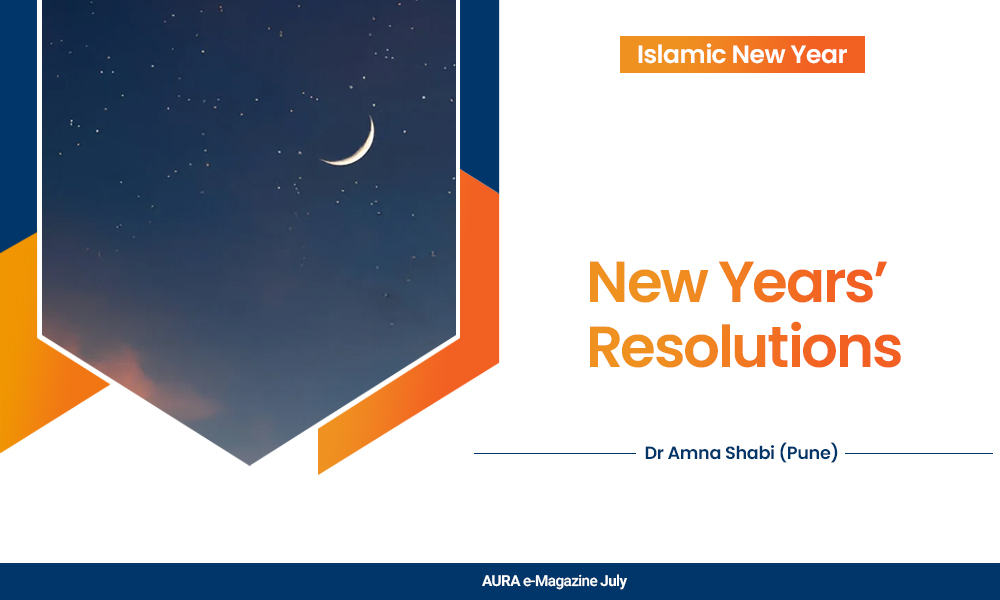
“O God, no good is but the good hereafter,
So, help the Helpers and the Emigrants.”
“No life is but the life of the Hereafter,
Mercy, O God, on Emigrants and Helpers.”
The Islamic New Year is set to arrive on the 7th of July, 2024, on the first of Muharram, the first month in the lunar Islamic calendar, which differs from the Gregorian calendar. The first year of this calendar began in Gregorian CE 622 when Prophet Muhammad (pbuh) emigrated from Makkah to Madina with his companions. This migration was called the Hijrah, thus the name Hijri Calendar.

The hijrah of Prophet Muhammad (pbuh) occurred due to the increasing persecution of Muslims in Makkah by the Quraysh tribe, who were staunch opponents of Islam. Facing threats to his life and the lives of his followers, Prophet Muhammad (pbuh) received permission from Allah to migrate to Madina, where he and his companions could practice Islam freely and establish a community based on Islamic principles. The migration to Medina not only provided a haven for Muslims but also allowed Islam to flourish and gain momentum. It enabled Prophet Muhammad (pbuh) to establish the first Islamic state and to engage in defensive battles against those who sought to oppress Muslims. The Hijrah is celebrated as an authoritarian event in Islamic history, symbolising perseverance, faith, and the establishment of Islam as a comprehensive way of life. This historical event, which symbolises the victory of triumph over faith, has many lessons for the world.
The first and foremost lesson for us is the foresightedness of our beloved Prophet Muhammad (pbuh). The Quraysh’s plan of assassinating the Prophet had backfired. Therefore, they declared an award of a hundred camels to whoever got news about Muhammad’s (pbuh) whereabouts. Prophet Muhammad (pbuh) and his close companion Abu Bakr (RA) undertook the journey to Madina by travelling through less-travelled routes to avoid detection by the Quraysh. Nevertheless, the award money was huge enough to lure anyone to track Muhammad (pbuh) down. Suraqa Ibn Malik was a skilled tracker who sought to pursue them and collect the bounty. In this reflective situation, wherein Muhammad’s (pbuh) life was at stake, the future of Islam was unknown, his companions were rendered homeless, and he had no idea about what the future held. His faith in the Almighty and his optimism were so monumental that he could assure Suraqa that he would wear the bracelets of Khusrow, the King of Persia. Prophet Muhammad (pbuh) strongly believed that the present superpower would one day submit to Islam. He had strategised a plan and was sure of Allah’s aid; therefore, he gave prodigious assurance to Suraqa. In times of adversity and hardships, Prophet Muhammad (pbuh) had complete faith in his Lord and had a modus operandi for Islam. Such foresightedness, strategies, faith, and target-oriented programmes are what the ummah needs today. It didn’t take more than a decade for the Prophet’s (pbuh) word to be authenticated.
Another example of a practical implementation that we learned from the Hijrah is that we must move away from being disobedient servants of Allah’ to the ones who submit to him completely. Makkah being the land of polytheism, the Muslims migrated to Madina so that they could establish their divine right to worship. They chose to leave behind their homes, their dwellings, and their birthplace only so that they could become better Muslims. They moved from kufr, polytheism, a form of injustice, to tauhid, monotheism. For today’s Muslims, it’s also incumbent upon us to move far away from iniquities to repentance, ignorance to awareness, bid’ah to sunnah, and darkness to light. We need this transformation. We must leave behind our laziness and egos and work towards strengthening our faith.
This new year, we should strengthen our bonds with our friends. The consecrated hijrah event has taught us the importance of brotherhood, wherein every single Ansar has been bound in brotherhood and tied to a Muhajir. A Muslim is not a Muslim if he does not choose for himself what he decides for his brother. This feeling of brotherliness and camaraderie needs to be promoted. In a diverse nation like India, this teaching of Islam is effortless. Encourage dialogue and cooperation with people of other faiths, organise community service projects and outreach programs that benefit people of all backgrounds regardless of their religious affiliation, and embrace and celebrate the cultural diversity within India while maintaining Islamic values.


Our religion teaches us to cooperate with anyone and everyone. Every segment of that society needs to be utilised for a society to flourish. The plan of the hijrah utilised every element of society. For a community to be successful, it is necessary to tap into the talents and proficiency of the masses. We must ally with people of different ages, backgrounds, ethnicities, and demographics. It’s not just the elders, elites, and the seniors; it’s not just one group of people, but people from all walks of life must work together for our deen. We need to give opportunities to the youth just like Prophet Muhammad (pbuh) allowed Abdur Rahman ibn Abu Bakr (RA), who played a pivotal role. A wide range of possible alternatives must be given to women like Asma bint Abu Bakr (RA), who was given the job to undertake a critical role in the migration of Prophet Muhammad (pbuh). thus, we must establish a society wherein the contributions of every single person matter.


0 Comments